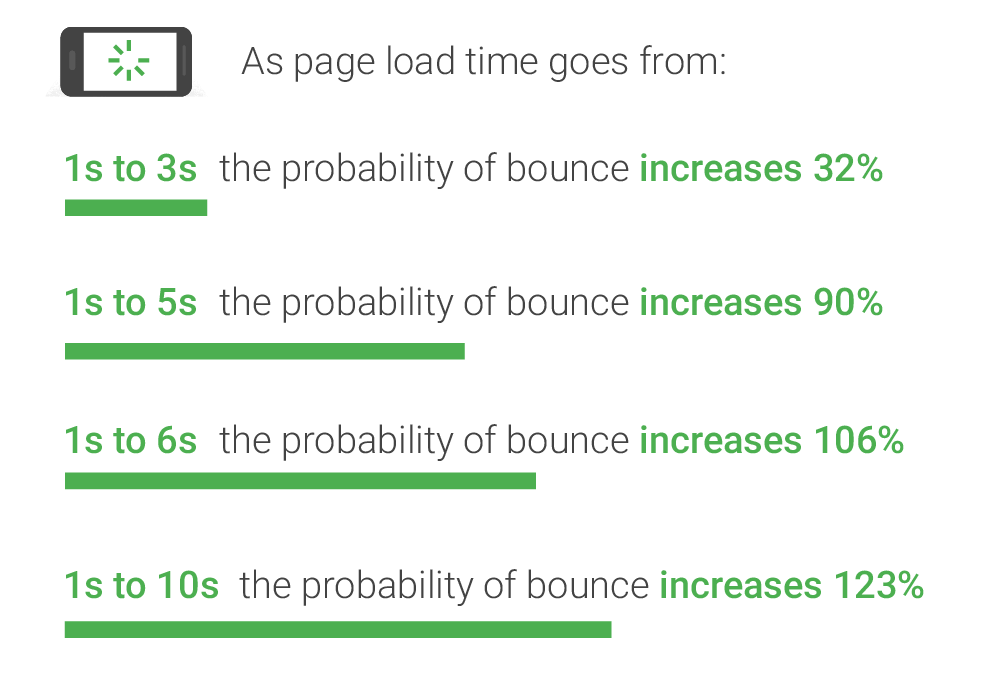Which eCommerce Platform is the Fastest? Shopify vs WooCommerce vs Magento

Your eCommerce site has one job to do and it needs to do it well — it needs to generate sales. People should be coming to your site, finding the products they want and need, then making a purchase. That’s the goal.
It might surprise you to learn that your website’s speed is a major factor in your ability to generate sales. After Google’s page speed update, your search rank will fall if your site loads too slowly. Plus, when you increase friction in the purchase process, sales plummet.
In this article, I’m going to show you why page speed matters. Then we’ll take a look at the top 3 platforms — Shopify vs WooCommerce vs Magento — and help you choose the fastest platform for your eCommerce store. Here we go!
Shopify vs WooCommerce vs Magento: Which one will get the speed results you need?
Page speed matters — a lot. It impacts your ability to be seen by search engines and hurts your relationship with buyers.

Source: Google/SOASTA Research, 2017.
Slow Load Times Hurt Buyer Relationships
Getting someone to purchase is all about removing friction from their experience. If you make it less frustrating to purchase, you will increase sales. And there’s nothing more frustrating than waiting on a site to load.
In a study by Google:
- 53% of people will leave a website if it takes more than 3 seconds for the page to load.
- The average website page still takes more than 15 seconds to load.
- More than half of all website traffic comes from mobile devices — this is typically higher for most eCommerce sites. Despite that, mobile conversion rates are still lower than desktop.
Google’s Search Algorithm Penalizes Slow Load Times
In July of 2018, Google rolled out its page speed update. They understand that people want to be able to find the answers they need as fast as possible.
Page speed has been a signal for ranking for a while, but that was primarily focused on desktop visitors. This algorithm update expands the search ranking factor to mobile devices.
There is no tool that directly says which pages are affected, or how much they are affected. However, there are some tools that can evaluate a page’s performance.
Most notably, Google’s own PageSpeed Insights tool. You simply put in your website URL and it will score your website on a scale of 90-100 = fast, 50-89 = average, and 0-49 = slow. It will also give you some insights into what you can do to improve it.

Which eCommerce Platform is the Fastest
Your website’s software and hosting hardware can have a major impact on the overall load time of your site. In a comparison between Shopify, Magento, and WooCommerce, there are 3 distinct factors that impact speed — website hosting, theme design, and images.
Hosting
Shopify is a hosted platform. This means that you don’t have to worry about page load speed or making improvements on the server level to improve performance. The technicians that manage their servers and software will do all of that for you.
Shopify has a vested interest in making sure your site generates sales so you continue using their platform. They will stay on top of the latest techniques to improve speed for you.
Magento and WooCommerce are both self-hosted platforms, so things get a little trickier.
You have two options:
- You can choose a hosting provider that offers a managed WordPress or managed Magento hosting package. They will take care of applying speed optimizations to your site as well as applying most plugin and software updates to your site. The downside is that they will charge a premium fee for doing this that is typically more expensive than Shopify.
- You can choose a hosting provider and manage the software installation, updates, and backups yourself. The cost will typically be the same or less than Shopify, but you will need the technical ability and time to put into maintenance. If you aren’t sure what you’re doing and cause your site to go down, you could lose sales during that time.
Theme Design
The way that your theme is coded can impact your site load time. Images, scripts, and even file structures all have the potential to reduce your speed.
This is more evident in Magento and WooCommerce where there’s less control over the theme’s available in the marketplace. There are a variety of developers following a wide array of different coding techniques and best practices.
Shopify takes more control over what is allowed in their themes, so this reduces — but doesn’t eliminate — the risk of bad coding practices. Try different themes and test your speed to find a good fit for your store.
Images
Product images are important for your store to be successful. You need to show people what they’re buying. This means plenty of high-quality images that showcase your products from different angles, in different situations, across a variety of colors, and many other scenarios.
Each product page will likely have at least 3 to 5 images — if not more.
Pages on your site that list multiple products or categories of products will have many more. It’s entirely possible for a listing page to have as many as 20 to 50 images that have to be loaded.
Shopify provides a content delivery network (CDN) to help your images load faster. With Magento and WooCommerce, you would need to purchase your own CDN.
You also need to make sure that you optimize your images before uploading them. Web services like Kraken.io and Optimizilla make this easy to do.
Professional Speed Optimization
Speed optimization is important for an eCommerce store owner. Your search engine rank and on-page load time optimization are crucial for growth as speed becomes more and more of a factor in online shopping.
It’s obvious to me that Shopify is the clear choice when you care about your page speed. Our team specializes in building high-performing Shopify sites. If your site is running slowly, then schedule a meeting and let’s talk about how we can improve it.

 Ryan Kodzik
Ryan Kodzik 
